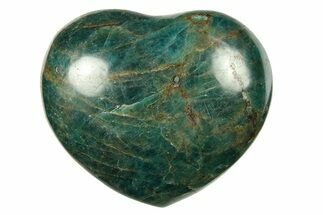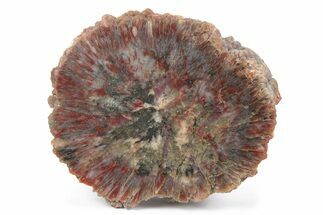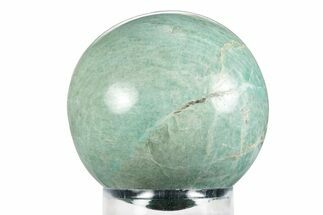This Specimen has been sold.
2.7" Crystal Filled Dugway Geode (Polished Half)
This is half of a Dugway Geode containing many glimmering quartz crystals, that has been cut and polished. Beautiful quartz formations can be seen throughout the face of the geode.
It comes with an acrylic display stand.
It comes with an acrylic display stand.
These geodes come from what is known as the Dugway Geode Beds in Western Utah. About 6 to 8 million years ago, volcanic activity in the area deposited an extrusive igneous rock called rhyolite. Gasses trapped in the rock formed hollow cavities, and millions of years of groundwater circulation allowed minerals to precipitate into these cavities, forming crystals. The resulting crystal-lined cavities are known as geodes.
Roughly 32,000 to 14,000 thousand years ago, wave action from a large lake that covered much of western Utah (Lake Bonneville) eroded the geodes from the rhyolite. These geodes were then deposited in the lake sediments. These ancient lake sediments are what is now known as the Dugway Geode Beds. The most common mineral found in these geodes is clear quartz, though amethyst and rose quartz can also occur. The geodes tend to be relatively small, about the size of a baseball on average, though rare examples can be found up to a foot across.
Roughly 32,000 to 14,000 thousand years ago, wave action from a large lake that covered much of western Utah (Lake Bonneville) eroded the geodes from the rhyolite. These geodes were then deposited in the lake sediments. These ancient lake sediments are what is now known as the Dugway Geode Beds. The most common mineral found in these geodes is clear quartz, though amethyst and rose quartz can also occur. The geodes tend to be relatively small, about the size of a baseball on average, though rare examples can be found up to a foot across.
SPECIES
Quartz Geode
LOCATION
Dugway Geode Beds, Near Delta, Utah
SIZE
2.7" wide
CATEGORY
SUB CATEGORY
ITEM
#121650
 Reviews
Reviews












